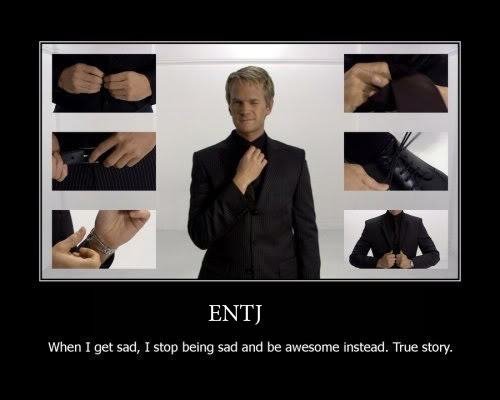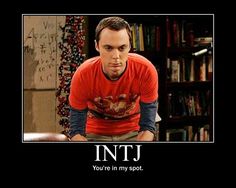My family likes to discuss our results of the Myers-Briggs test and finds the whole concept interesting, especially when we the siblings can see if we inherited personality traits from our parents. If the Myers-Briggs test doesn’t sound familiar, it is based on Carl Jung’s and Isabel Briggs Myers’ typological approach to personality. Upon completion of the 64 part questionnaire, you get a 4-letter result according to the Myers-Briggs typology, along with your strengths, weaknesses, and personality type. Briggs Type Indicator (MBTI) can divide you into 16 distinct types, combinations of introverts, extroverts, thinkers, feelers, the judging or perceptive. The results also give you careers that are best suited for you personality type. The test supposedly helps you find out more about yourself and can help you find the way you learn best. Sometimes, depending on which site you use, the results will show you which famous people share your personality type. The results can also help you to assess your compatibility with your long-term romantic partner. This area of science has a lot to do with psychology, but is this psychological test scientifically sound? Is this personality test actually true to who you are? Can a computer-generated test know your personality type simply by asking a few questions?
This is just an anecdotal example of the testing system, but I tend to get a different result every time I take the test with only a few months passing. Did my inherent personality change that much or is the test a hoax? My result after taking the test today was ESFJ, which stands for extrovert, sensing, feeling, and judging. Every time I take it, the letters change for the most part. E and J always stay the same, but sometimes the results tell me I’m an ESTJ personality type, sometimes I’m even an ENFJ. So how do I know for sure what I am or if the test works if I am always answering the questions honestly and my results always change?
This comic jokes that the Jung Typology (aka Myers-Briggs) test isn’t scientifically valid and is largely ignored by the field of psychology, but is there some truth behind this test?
The test is used by a lot of corporations to hire people. Before getting the job, the business may ask you to take the personality test to see if you are fitting for the job. The only thing is- if you know who and what they want, the test is easily manipulatable to get the result of say, an extroverted people-person who loves deadlines. So how can a test, that isn’t necessarily backed by scientific research or psychology use get so popular and frequently taken? People argue that it can help you to get to know yourself a little bit better, to know your strengths and weaknesses. The guardian.com argues, “The trouble is, the more you look into the specifics of the MBTI, the more questionable the way it’s widespread use appears to be. There are numerous comprehensive critiques about it online, but the most obvious flaw is that the MBTI seems to rely exclusively on binary choices.” The fact that the test was created by non-scientists is also questionable. The main argument that people have against the Jung Typology test is that people aren’t set in stone in their ways, and they also aren’t completely black and white with their personalities. One will never be 100% an extrovert or 100% an introvert. Some argue that it is oversimplified and that the test tries to fit a person into a character while real people aren’t characters. For example, these characters from a book can be fit into the exact descriptions of a Jung Typology Test, but not real people. This also goes along with stereotyping.
So if the test isn’t backed by science, should businesses hiring us be able to make up take the test along with our application to be able to say we must be -insert four-letter result here- to be a teacher, counselor, administrator, Supervisor? That is up to the corporation that is hiring. Jung himself argued the test isn’t all black and white, and that it gives you a percentage of each characteristic of yourself in order to see how strongly you hold that characteristic. The human personality is fluctuating, and people tend to change with age. It is a complex area to try and label with only 64 questions. “Dr Dean Burnett, of the Institute of Psychological Medicine and Clinical Neuroscience at Cardiff university, recently outlined a list of criticisms, including: the test’s reliance on binary choices, poor scientific foundations and the suspicion that it is a self-fulfilling phenomenon – the more people take it, the more others feel they have an obligation to do so too. ‘The big problem,” Burnett says: “Is that Myers-Briggs gives people a false impression of how psychology works. A false sense of expertise.'”
This test can benefit people, as long as the people don’t get too fixed on their results and don’t start to live according to them (for example, by the career suggestions). They can help you get to know yourself in certain social situations, and “scientific validity is necessary if you’re trying to diagnose a disorder of some sort, but in the everyday workplace for team building and the like? This is what MBTI is used for most, so why go on some major nerd-rant about how unscientific it is when it doesn’t really matter?” Some people believe in the test religiously, and live by the results of the test, only partaking in things that fit their assigned “personality type,” and will reject any scientific questioning of the test, to the point of cognitive dissonance. Sometimes, when I have taken the test before, I won’t even know how to answer a question honestly. For example, the test asks, “You tend to rely on your experience rather than on theoretical alternatives,” or, “You easily understand new theoretical principles.” And I am just not 100% sure of my answers to those questions, so I could be putting down answers that are not correct to what I truly do or who I truly am, giving me skewed results.
My suggestion after research is to take the test honestly and see what you get. Take the results with a grain of salt but it can be helpful to get to know yourself a little bit better. Do not live by the results and interact with others a certain way because of them. I believe one is neither a “thinker” OR a “feeler.” You can be a little bit of both. You can take the test and see for yourself here.







